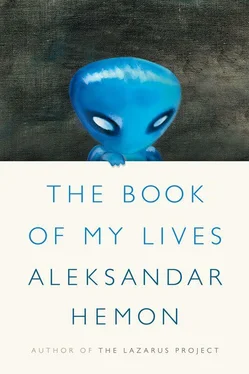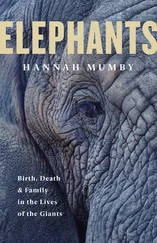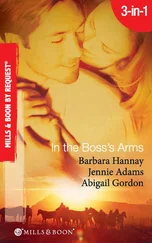2. WHO ARE WE?
When I was growing up in Sarajevo in the early seventies, the dominant social concept among the kids was raja . If one had any friends at all, one had a raja , but normally the raja was defined by the part of town or the building complex one lived in — we spent most of our nonschool time playing in the streets. Each raja had a generational hierarchy. The velika raja were the older kids, whose responsibilities included protecting the mala raja —the smaller kids — from abuse or pocket-emptying by some other raja . The older kids’ rights included unconditional obedience on the part of the mala raja , who could thus always be deployed to buy cigarettes, naked-lady magazines, beer, and condoms, or to volunteer their heads for the velika raja ’s merciless filliping practice — my head was often submitted to a cannonade of the dreaded mazzola s. Many raja s were defined by and named after their leader, usually the strongest, toughest kid. We feared, for example, the raja of Ćiza, who was a well-known jalijaš , a street thug. Normally, Ćiza was old enough to be gainfully invested in various forms of petty crime, so we never saw him. He acquired a mythological quality, while his younger brother Zeko ran the daily operations of doing nothing in particular. It was he who we feared most.
My raja was a lesser, weak one, as we had no leader at all — all of our older boys, alas, took school seriously. We were defined by a playground between the two symmetrical, socialistically identical buildings in which we lived; we called it the Park. In the geopolitics of our neighborhood (known back then as Stara stanica — the Old Train Station) we were known as the Parkaši. The Park not only contained playground equipment — a slide, three swings, sandbox, merry-go-round — but there were benches as well, which served as goals whenever we played soccer. There were also, more important, the bushes where we had our loga —our base, the place where we could escape from Ćiza’s marauding raja , where we hoarded things stolen from our parents or pilfered from other, feebler kids. The Park was therefore our rightful domain, our sovereign territory, on which no stranger, let alone a member of another raja , could trespass — any suspected foreigner was subject to preemptive frisking or punitive attack. Once we waged a successful campaign against a bunch of teenagers who mistakenly thought that our Park was a good place for smoking, drinking, and mutual fondling. We threw at them rocks and wet sand wrapped in paper, we charged collectively at the isolated ones, breaking long sticks against their legs as they helplessly swung their short arms. Occasionally, some other raja would try to invade and take control of the Park and we would fight a war — heads were cracked, bodies bruised, all and any of us risking a grievous injury. Only when Zeko and his troopers — our more powerful nemesis — came to the Park did we have to stand back and watch them swing on our swings, slide on our slide, piss in our sandbox, shit in our bushes. All we could do was imagine merciless revenge, deferred into an indefinite but certain future.
Now it seems to me that when I wasn’t in school or reading books, I was involved in some collective project of my raja . Besides protecting the sovereignty of the Park and waging various wars, we spent time at one another’s homes, swapped comic books and football stickers, sneaked together into the nearby movie theater (Kino Arena), searched for evidence of sexual activity in our parents’ closets, and attended one another’s birthday parties. My primary loyalty was to my raja and any other collective affiliation was entirely abstract and absurd. Yes, we were all Yugoslavs and Pioneers and we all loved socialism, our country, and its greatest son, our marshal Tito, but never would I have gone to war and taken blows for those. Our other identities — say, the ethnicity of any of us — were wholly irrelevant. To the extent we were aware of ethnic identity in one another, it was related to the old-fashioned customs practiced by our grown-ups, fundamentally unrelated to our daily operations, let alone our struggle against the oppression we suffered from Zeko and his cohorts.
One day I went, with nearly all of my raja , to Almir’s birthday party. Almir was somewhat older than me, therefore an authority on many things I knew nothing about, including the explosive properties of asbestos, which we called “glass wool” and to which we somehow had unlimited access. On one occasion I had repeatedly ducked as he threw, like a hand grenade, a handful of “glass wool” wrapped in paper, promising an explosion that never came. Almir was also old enough to be getting into rock music, so at his party he played Bijelo Dugme, the Sarajevan rock band that was at the time scaring the living daylights out of our parents, what with their hairy looks and antisocial, antisocialist, asinine music. Other than that, Almir’s was birthday business as usual: we ate the sandwiches, drank the juices, watched him blow out the candles on the cake, offered him our gifts.
For his birthday party, Almir was neatly dressed, which on that occasion meant a wool sweater with black and orange stripes, somewhat fluffy and comparatively resplendent — our socialist-Yugoslavia clothes were decidedly drab. The sweater visibly belonged to someplace else, so I asked him where it came from. It came from Turkey, he said. Whereupon I quipped: “So you are a Turk!” It was supposed to be a funny joke, but nobody laughed; what’s worse, nobody thought it was a joke. My point was that a foreign sweater made him a kind of foreigner, a teasing possible only because it was manifestly and unquestionably untrue. The failed joke entirely changed the mood of the party: to my utter surprise Almir started inconsolably crying, while everyone looked at me admonishingly. I begged them to explain what it was that I’d said, and when they didn’t, or couldn’t, I tried to outline how the joke was supposed to have worked, digging thereby a deeper hole for myself. Let me not go through all the steps of the descent into a disaster — before long the party was over; everyone went home, and everyone knew that I had ruined it. That is, at least, how I guiltily remember it.
Subsequently, my parents explained to me that Turk was (and still is) a derogatory, racist word for a Bosnian Muslim. (Years later, I would recall my inadvertent insult, yet again, while watching the footage of Ratko Mladić speaking to a Serb camera upon entering Srebrenica, where he was to oversee the murder of eight thousand Bosnian Muslim men—“This is the latest victory in a five-hundred-year-long war against the Turks,” he said.) After Almir’s birthday party, I learned that a word such as Turk could hurt people. Moreover, it seemed that everyone knew about it before me. What I said othered Almir, it made him feel excluded from the group I was presumably unimpeachably part of, whatever group it was. Yet my joke was supposed to be about the flimsiness of difference — as we belonged to the same raja , having fought many a war together, the sweater established a momentary, evanescent difference. Almir was teasable exactly because there was no lasting, essential difference between us. But the moment you point at a difference, you enter, regardless of your age, an already existing system of differences, a network of identities, all of them ultimately arbitrary and unrelated to your intentions, none of them a matter of your choice. The moment you other someone, you other yourself. When I idiotically pointed at Almir’s nonexistent difference, I expelled myself from my raja .
Читать дальше












